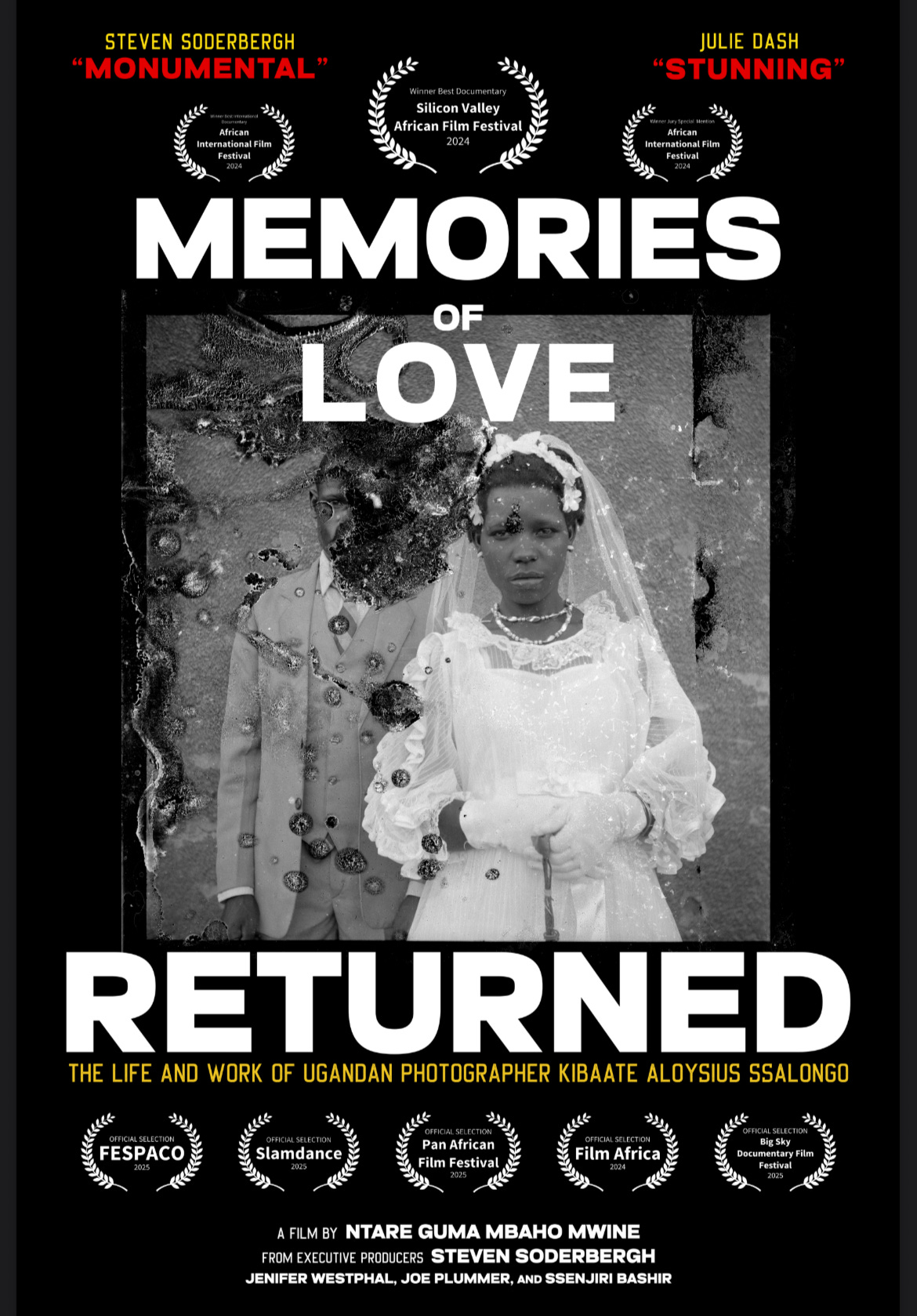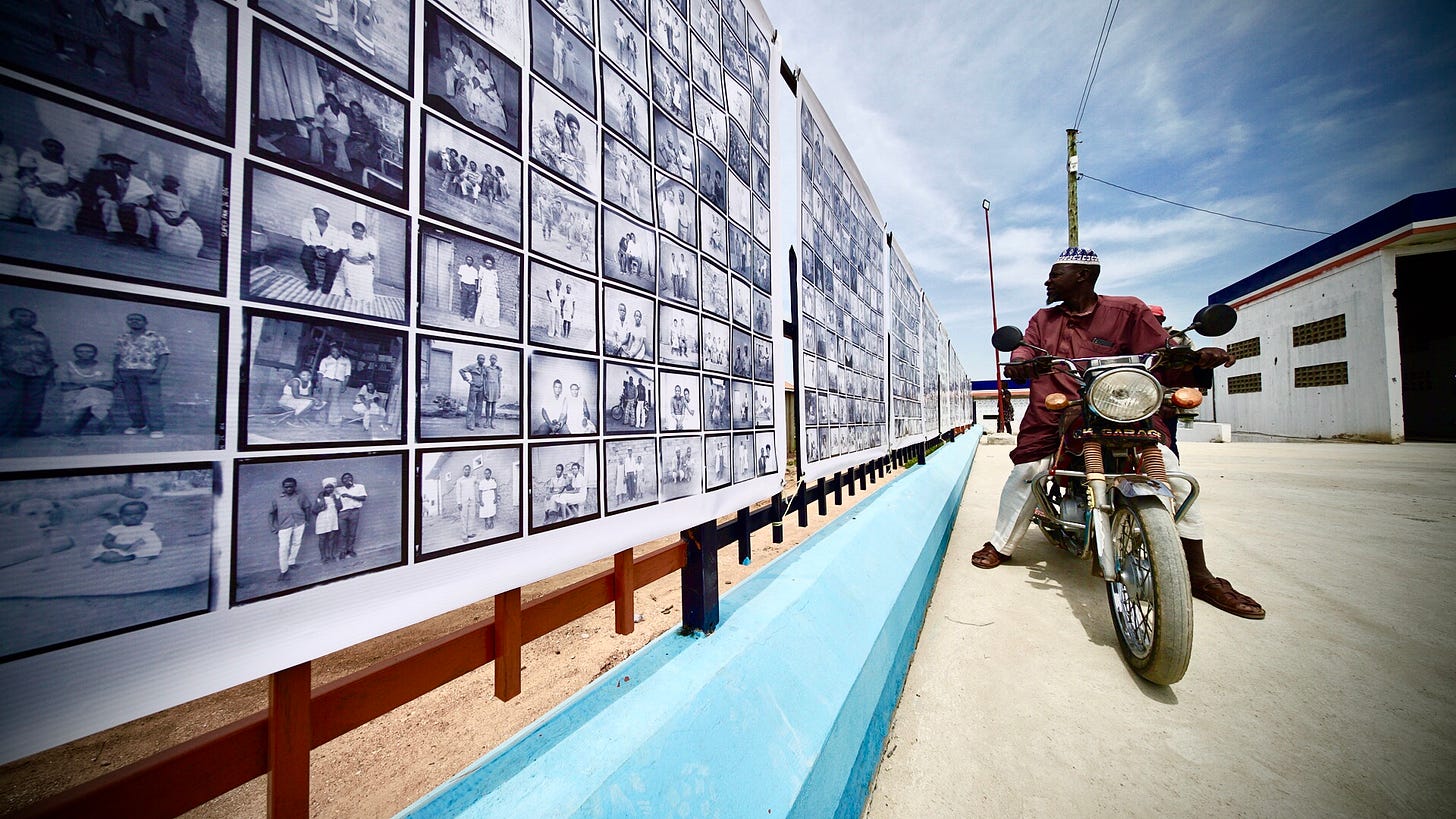Happy weekend!
It has been a long and grey week in New York. I spent most of it trying to make tangible progress on a project I will tell you more about soon. I managed to carve out time to see Amy Sherald’s American Sublime exhibit at The Whitney. I knew very little about Amy’s work outside of her portrait of Mrs O, but I came away a big fan. You can see some of the highlights of my visit on my Instagram story highlights for this newsletter. Earlier in the week, I visited Dye Lab’s New York pop-up. It was a good time, and I am now on the lookout for a suitably chic event to wear my new agbada. I’m ready.
A quick recap of what has gone out so far on AU. I interviewed Nkuli Mlangeni-Berg, a South African textile maven. I defended Zimbabwean names (and my country’s honour;). I also interviewed the Nigerian visual artist Mayowa Alabi about making it as an artist in Lagos.
In this week’s edition of Creatives You Should Know #3, I am speaking with Ntare Guma Mbaho Mwine, a Ugandan-American actor, playwright and filmmaker whose documentary, “Memories of Love Returned,” is currently on the festival circuit.
I had a chance to watch it a few weeks ago at the African Film Festival. It is a moving, thought-provoking exploration of time, art, and memory. At its centre is a man called Kibaate Aloysios Ssalongo, who ran a small portrait studio in the Ugandan town of Mbirizi. A chance meeting with Ntare in 2002 turned into a long friendship and a mission by Ntare to document the extensive work of the rural photographer. I cannot recommend this documentary enough. It is a warm, thoughtful, and funny celebration of a genuinely gifted, under-sung Ugandan photographer. It is the perfect antidote to the firehose of salacious true crime documentaries.
Kim: What was it about Kibaate’s story that made you think that there is something worth exploring here?
When I first met him, I realised that there was something incredibly special about him, because he had tens of thousands of medium-format negatives spanning decades. His work had never been published or displayed publicly. I took it upon myself to figure out how to get his work out, because it was so special. He captured moments of intimacy and love between people in rural settings, which is something I hadn't seen, and I thought that needed to be celebrated.
When did you realise that the best way to tell Kibaate’s story would be through a documentary?
That wasn't until 2019. I had thought initially that it would be a book. That would have been the easiest way. And then I realised the project was getting bigger and bigger, and a documentary would be the best approach. It's funny now that the documentary has been completed; it would have been easier to do a book! A book is still definitely in the works. I promised [Kibaate] a book.
What do you think made you uniquely qualified to tell Kibaate’s story?
Both my parents are from Uganda. I was born in the States, but I feel like a child of both worlds. I've been going back and forth since before I can remember. In a parallel universe, I could have been born in Uganda and become a local photographer, just like Kibaate. So, it was like a window into my world. I felt a real connection and kinship with him, which made me more curious about discovering who he was and his work.
You have played many different roles on screen and stage, so what for you was the most significant shift that came with going behind the camera?
I think the biggest shift that comes with being behind the cameras is that it is your creation. You're not just playing a small part. When I'm starring in the Dexter TV series, I play one small part. I'm not in the editing room, I'm not figuring out the marketing, I'm not figuring out the music score. For the documentary, I had to take full ownership.
This is a project that is two decades in the making. What was the biggest challenge that came with making this documentary?
I will tie it back to Kibaate’s motto ‘Akwata Empola Atuuka Wala,’ which translates as “The person who moves slowly reaches far.” I think that the frustration was sometimes feeling like I'm moving slowly and not going anywhere. But now, now that I'm talking to you and the film is out, I feel like I've made it!
Kibaate passed away in 2006. What made you so determined to continue and see this project through?
I knew how much it meant to him for his work to be seen by a wider audience, and then he passed away. I was haunted by his voice. When he passed away, I had thousands of his negatives sitting in my drawer in LA, and I said, I have to do something. I don't know if you've ever made a promise to somebody who's died before, but that was enough [motivation] for me to keep the ghosts at bay.
It’s clear from the film that you came to know Kibaate’s extended family and the wider community too – how did you navigate that line between being a friend and an ‘objective’ observer?
It was extremely tricky. Some of the family members were calling me father. And I was like, “No, I am not your father. I am a friend of Kibaate’s”. It did require trying to draw the line, trying to distance myself in a way. I didn't want them to think that I was trying to fill Kibaate’s shoes. He was a big central figure in the family, and when that central figure was gone, there was a vacuum that was created, and all this infighting resulted. I had to distance myself by saying I can't take on the responsibility of being a father figure. I am just a friend of Kibaate, a filmmaker.
Is there a distribution plan in place to ensure the film gets the widest possible audience, including across the continent?
There was a distributor at the screening you attended, and they expressed interest in distributing the film. I'm keeping fingers crossed that it's a legit and worthwhile offer,
I'm planning an East African tour of the film, where it will be screened in Uganda for the first time, as well as in Rwanda, Kenya, and Tanzania. I'm putting that whole tour together. I also hope the book will be finished by the end of the year.
What has making this documentary taught you about yourself?
I've learned that I can persevere through obstacles, and I've learned that I can keep a promise. It's a huge relief that this work now exists and can stand on its own.
It was a huge undertaking. I feel grateful that I managed to do it.
Where to see Memories of Love Returned
Memories of Love Returned - Festival screening schedule
May 30th, 2025, Berkshire International Film Festival, Massachusetts
June 6th, 2025 LightReel Film Festival, Washington D.C
November 8th, 2024 Africa International Film Festival in Lagos, Nigeria
October 26th, 2024 Film Africa in London, UK
October 10th, 2024 Silicon Valley African Film Festival
You can follow Ntare here. He will also be in the upcoming Apple TV+ series Smoke.
Other Business…
Anyone who follows the Caine Prize for African Writing knows how instrumental it has been in spotlighting emerging talent. It has an excellent track record with a remarkable list of past winners. This year, in celebration of its 25th anniversary, judges will select the best short story to have won the Caine Prize in its 25 years. It’s going to be a tough task for the judges because there have been some spectacular winners. I wish they would make all the stories available online, even if it were for a limited time, but you can read last year’s winning entry by Nadia Davids here.
Happy weekend!
PS. Africa Unbound is free, so please share it with anyone you think might enjoy it. Please let me know if there are any creatives you think I should feature.












I'm so excited for your Substack!! Because of you, I'm now searching out how to watch "Memories of Love Returned!" (I don't see any local-to-me showings, but see it's listed on a few streaming platforms.) Thank you for your work!